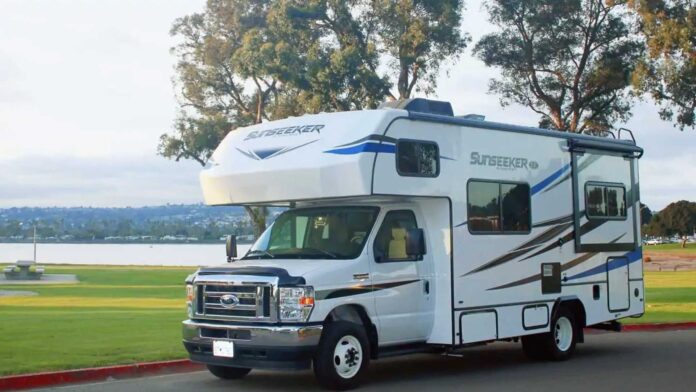Renting an RV is a great way to experience the freedom and adventure of the open road. Whether you’re planning a family vacation, a road trip with friends, or a solo adventure, an RV rental can provide you with the flexibility and comfort to travel at your own pace and explore new destinations. In this beginner’s guide, we’ll cover everything you need to know to make the most of your rental experience, from choosing the right RV to driving and maintaining it.
Why Rent an RV?
There are many reasons why renting an RV might be a great choice for your next vacation. One of the biggest RV rental advantages is the flexibility it offers. With an RV, you can travel at your own pace, change your itinerary as you go, and stay in a variety of locations, from national parks to urban areas. They also provide a comfortable and convenient way to travel with your family or friends, with all the amenities of home on the road. Finally, renting an RV can be a cost-effective way to travel, particularly if you’re traveling with a group and splitting the costs.
Vehicles Available for Rent
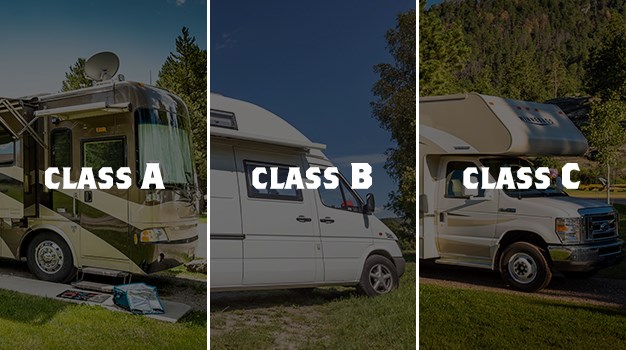
There are many types of RVs available for rent, each with its own advantages and disadvantages. Here are some of the most common types of vehicles:
- Class A Motorhomes: These are the largest and most luxurious RVs, often resembling a bus. They typically offer the most amenities, including full kitchens, bathrooms, and bedrooms.
- Class C Motorhomes: These are smaller than Class A and have a distinctive cab-over design. They’re a good choice for families or small groups and offer many of the same amenities as Class A motorhomes.
- Travel Trailers: These models are towed behind a vehicle and come in a variety of sizes and styles. They offer many of the same amenities as motorhomes but are often more affordable.
- Fifth-Wheel Trailers: These are similar to travel trailers but are designed to be towed by a truck with a special hitch. They’re often larger and more luxurious than travel trailers.
- Camper Vans: These are the smallest type of RV and are often built on a van chassis. They’re a good choice for solo travelers or couples and are easy to maneuver and park.
Choosing the Right Model For Your Needs
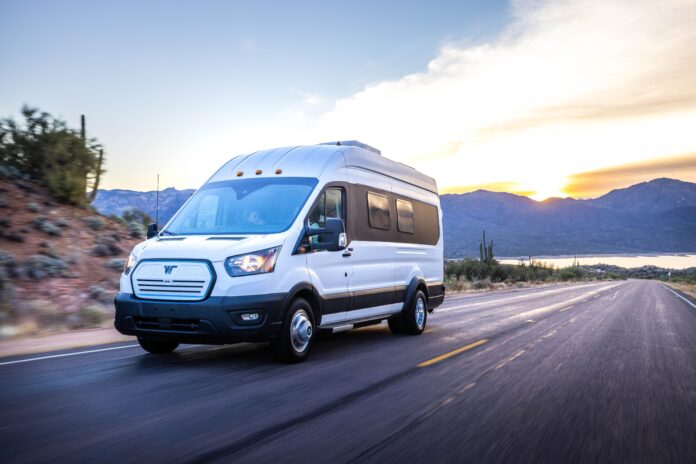
Choosing the right vehicle for your needs is essential to having a successful rental experience. Consider your group size, your budget, and your travel plans when choosing an RV. Class A motorhomes are a good choice for larger groups or those who want the most amenities, but they can be expensive to rent and difficult to maneuver. Travel trailers and camper vans are more affordable and easier to drive, but they may not offer as many amenities. Consider your travel plans as well, as some RVs are better suited for certain types of trips, such as off-road adventures or long-distance road trips.
Costs and Budgeting
RV rental costs can vary widely depending on the type of vehicle, the rental company, and the season. As a general rule, Class A motorhomes are the most expensive, with daily rental rates often exceeding $300 per day. Travel trailers and camper vans are more affordable, with rental rates ranging from $50 to $200 per day. In addition to the daily rental rate, you’ll also need to consider the cost of fuel, campground fees, and other expenses, such as food and activities. To budget for your rental, consider all of these expenses and plan accordingly.
Tips for First-Time Renters
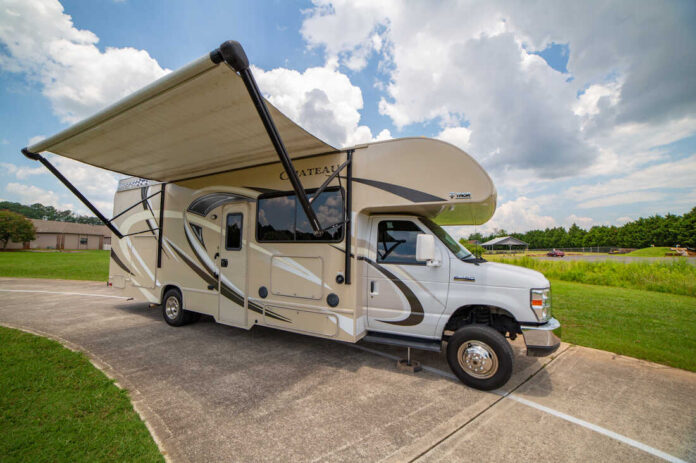
If you’re renting for the first time, it can be overwhelming. Here are some tips to help you make the most of your rental experience:
- Do your research: Research rental companies, vehicle types, and travel destinations before making a reservation.
- Take a test drive: Before hitting the road, take some time to familiarize yourself with the RV and take a practice drive.
- Plan your itinerary: Plan your route and campground reservations in advance to ensure availability.
- Pack smart: Only bring what you need and pack strategically to maximize storage space.
- Follow the rules: Follow campground rules and rental agreements to avoid fees and penalties.
- Be prepared: Bring a toolkit, first aid kit, and other essentials to handle emergencies on the road.
RV Driving and Safety Tips
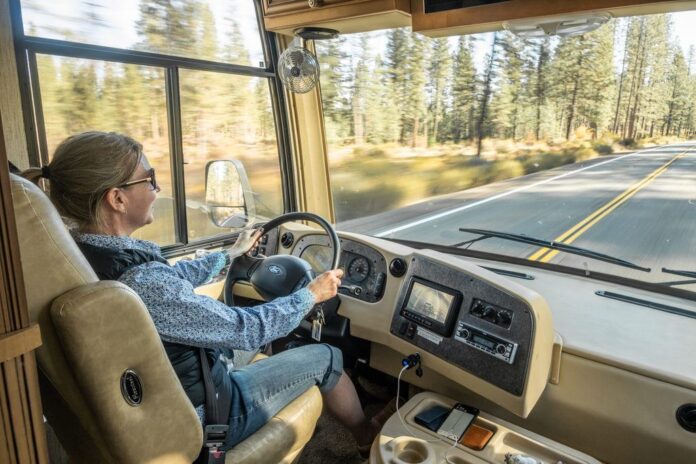
When driving an RV, it’s crucial to follow some basic safety tips to ensure a safe journey on the road. Here are some essential tips to keep in mind:
- Be aware of the height: It’s important to know the height of your vehicle and be mindful of low clearances, such as bridges and overpasses.
- Take turns slowly: Due to their higher center of gravity, RVs can tip over if you take turns too quickly. Therefore, it’s essential to take turns slowly and cautiously.
- Use your mirrors: These vehicles have large blind spots, which make it challenging to be aware of your surroundings. Hence, using your mirrors is crucial to stay aware of what’s around you.
- Brake early: They require more time to brake than cars, so it’s essential to brake early and maintain a safe distance from the vehicle in front of you.
- Check the weather: Driving an RV in strong winds or heavy rain can be challenging. Therefore, it’s important to check the weather forecast and adjust your driving accordingly.
Understanding Campsite Requirements
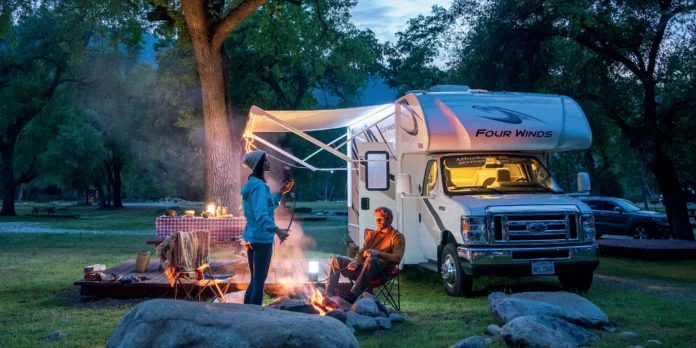
Not all campsites are created equal when it comes to RVs. Before making a reservation, make sure the campsite can accommodate your vehicle:
- Site size: Ensure that the campsite is large enough to accommodate the length and width of your RV.
- Hookups: Check whether the campsite provides the necessary hookups for your RV, such as water, sewer, and electricity.
- Access: Make sure that the campsite has easy access for your RV, including clearances and turns.
Essential Items to Pack
When packing for your trip, it’s important to bring the essentials, including:
- Bedding and towels
- Kitchen supplies, such as pots, pans, and utensils
- Cleaning supplies
- Outdoor gear, such as chairs and a grill
- Basic tools and a first-aid kit
In conclusion, renting an RV can be a fun and rewarding experience, but it’s important to do your research and plan ahead. By choosing the right vehicle, following safety guidelines, and maintaining it properly, you can enjoy a safe and enjoyable road trip. Remember to have fun and enjoy the freedom of the open road!
